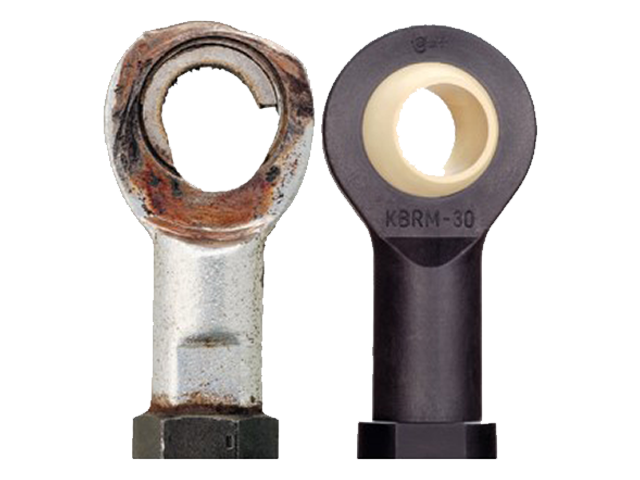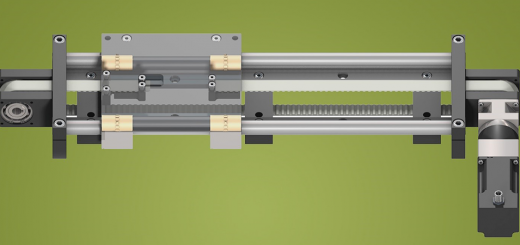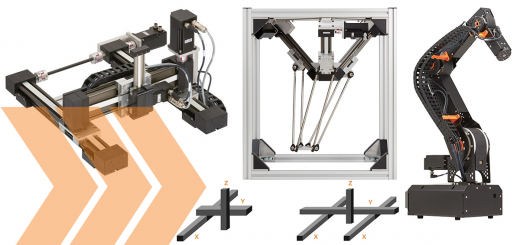6 Reasons to Use Plastic Spherical Bearings
When starting work on a new project that requires motion control, one of the most important considerations is what bearings to use. It’s easy to fall back on what you’ve been using for years instead of rocking the boat with new ideas or concepts. You might be more inclined to stick with bulky, robust steel or bronze bearings without thinking about the benefits of plastic bearings. In most applications, plastic spherical bearings deliver a better performance than their metal counterparts. Here are six reasons why design engineers should consider using plastic spherical bearings:
- Self-Lubricating Plastic spherical bearings do not require any external lubrication, making them completely maintenance-free. Self-lubricating bearings are an ideal solution for applications where dirt and dust can become embedded in any lubrication present, which could lead to performance issues. Alternatively, the lack of required greases or oils is ideal in applications where contamination from these lubricants is detrimental, such as in food packaging or laboratory equipment.
- Reduced Costs Plastic spherical bearings can reduce costs by up to 40% without sacrificing quality. Not only are they less expensive, but maintenance costs are also significantly reduced.
- Vibration dampening Plastic spherical bearings eliminate the excess noise and chattering associated with metal bearings. For applications where noise is an issue, such as in the medical industry, plastic bearings are ideal.
- Corrosion and chemical resistance Unlike metal or bronze bearings, plastic bearings will never corrode and are resistant to most chemicals. They can be used in washdown, salt water, and caustic applications. Most metal rod ends are made from steel, which will certainly corrode. Stainless steel options are available, but at a much higher cost.
- Lightweight Plastic spherical bearings are 80% lighter than steel, which offers a number of advantages in a wide range of applications where weight reductions can offer benefits, including faster products or increased fuel efficiency.
- Predictable lifespan and wear rates With the igus® Expert System online tool, users can enter their maximum loads, speeds, temperatures, and shaft and housing materials, which then prompts the system to calculate the appropriate plastic bearing and its expected lifetime, based on decades of real-world testing.

Testing: Test Parameters: An endurance test was run to measure the wear rates of a steel spherical bearing vs. an igus® igubal® EBRM-06 plastic spherical bearing. Both bearings were placed under loads between 10 and 20 lbs. (with vibrations) over the year-long endurance test (approximately 6,500 running hours, 15,000 cycles per hour).
Test Results: While the steel bearing failed completely at approximately 50 million cycles, the igubal® bearing lasted throughout the entire test, approximately 97 million total cycles. After the completion of the test, the inner diameter of the igubal® bearing was measured by a pin gauge test to be 6.0 (moves) – 6.1 (sticks).
Plastic spherical bearings can replace steel or bronze bearings in almost any application. They not only cost less, but reduce maintenance and installation costs. By making the switch to plastic bearings, you can reduce the threat of bearing failure, and instead, concentrate on the more important parts of your application. For more information about igubal® plastic spherical bearings, visit the product page or contact us directly at 1-800-965-2496.



